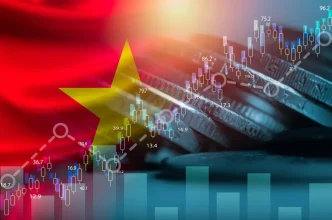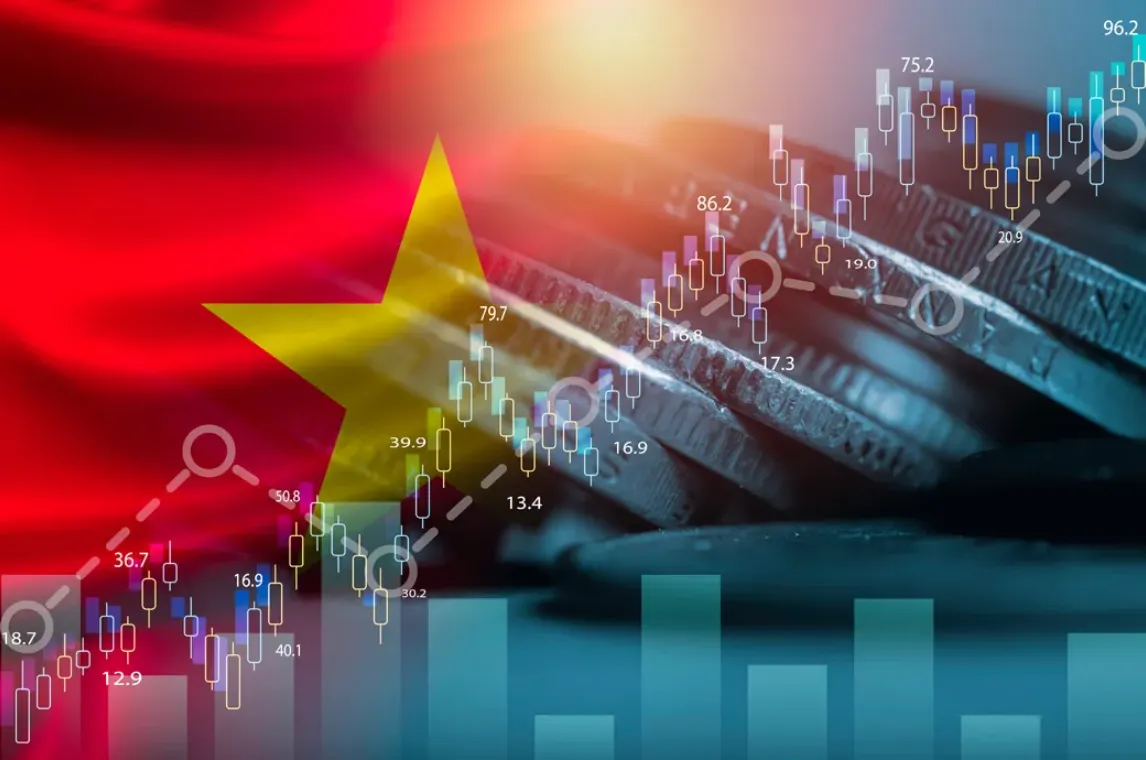Vietnam has committed to purchasing $3 billion in US agricultural commodities, a strategic move to address trade imbalances and mitigate the impact of the Trump administration’s 46% tariffs on Vietnamese exports. The pledge, announced during a high-level visit from 2-6 June 2025 led by Minister of Agriculture and Environment Do Duc Duy, underscores Hanoi’s push to deepen its Comprehensive Strategic Partnership with Washington as the two nations celebrate 30 years of diplomatic relations. The delegation, comprising nearly 50 agribusinesses and industry associations, signed 20 memoranda of understanding (MoUs) across Iowa, Ohio, Maryland, and Washington, D.C., securing deals for US agrifood and timber products while advocating for a fairer trade agreement.
A Bold Step Toward Balanced Trade
The $3 billion in agreements—$800 million tied to Iowa’s corn and soybeans and $600 million for Ohio’s animal feed and grains—reflects Vietnam’s growing demand for high-quality US commodities to support its burgeoning agricultural sector. The deals aim to reduce Vietnam’s $40 billion trade surplus with the US, a key driver of Washington’s tariff policies (US Census Bureau, 2024). These tariffs, intended to protect US markets, have raised prices for American consumers, particularly low-income households reliant on affordable agrifood imports, while threatening Vietnamese exporters’ access to a critical market.
Minister Duy, speaking at a US-ASEAN Business Council roundtable in Washington, framed the initiative as a cornerstone of mutual prosperity. “Our agricultural sectors are complementary, not competitive,” he said. “By integrating supply chains, we enhance competitiveness, bolster global food security, and deliver benefits to farmers and consumers in both nations” (US-ASEAN Business Council, 6 June 2025). He emphasized Vietnam’s reforms—streamlining regulations, upgrading infrastructure, and fostering a business-friendly environment—to attract US investment and facilitate long-term trade.
Beyond commodities, the delegation sought access to US agricultural technologies, such as biotechnology and precision farming, to modernize Vietnam’s value chains. This aligns with Vietnam’s ambition to become a regional agricultural hub, leveraging its 6.5% annual GDP growth over the past decade (World Bank, 2024). The country’s decision to commercialize US biotech products signals a commitment to global standards, potentially boosting yields by 10-15% by 2035 (FAO, 2024, unconfirmed projection).
US Stakeholders Embrace the Opportunity
The visit was met with enthusiasm across the US. Iowa Governor Kim Reynolds, posting on X, hailed the MoUs as a lifeline for local farmers, strengthening ties between Iowa and Vietnam (@KimReynoldsIA, 5 June 2025). Mike Naig, Iowa’s agriculture secretary, noted that $800 million of the deals directly benefit his state’s producers, a significant boost for Iowa’s corn and soybean industries (@IowaAgSec, 5 June 2025). In Ohio, agriculture secretary Brian Baldridge highlighted the complementary strengths of the two nations, urging both governments to remove trade barriers. “Vietnam is a growing market with immense potential,” he said during a meeting with Minister Duy (Ohio Department of Agriculture, 4 June 2025).
Patty Mann, chair of the Ohio Corn Checkoff, called the $600 million in animal feed agreements “a major win” for Ohio’s farmers, while Wendy Osborn of Ohio Corn and Wheat emphasized their long-term value. “These partnerships build on years of trust and provide sustainable markets for Ohio’s farm families,” she said (Ohio Corn and Wheat, 4 June 2025). US agricultural exports to Vietnam have grown 12% annually since 2020, with Vietnam now ranking among the top 10 markets for US corn and soybeans (USDA, 2024).
In Washington, discussions with the US-ASEAN Business Council and lawmakers underscored the economic stakes. Ted Osius, the council’s president, acknowledged the challenges of shifting US tariff policies but praised Vietnam’s proactive approach. “Increasing imports to reduce the trade surplus is a constructive step,” he said (US-ASEAN Business Council, 6 June 2025). Senator John Boozman, chair of the Senate Agriculture Committee, lauded Vietnam’s economic dynamism and pledged to convey its tariff concerns to US authorities. Representative Glenn Thompson, his House counterpart, expressed confidence in deeper cooperation, particularly praising Vietnam’s adoption of US biotech products as a sign of agricultural modernization.
The Tariff Challenge
The Trump administration’s 46% tariffs, introduced to address Vietnam’s trade surplus, have sparked widespread concern. For US consumers, the tariffs have driven up prices for agrifood staples, with a 2024 Peterson Institute study estimating a 2-3% increase in grocery costs, adding $150-$200 annually to the average household’s expenses. Low-income families, already stretched by inflation, face the brunt of these hikes. For Vietnamese exporters, particularly in seafood and processed foods (25% of exports to the US), the tariffs threaten market access, risking $10 billion in annual trade (Vietnam Ministry of Industry and Trade, 2024).
Businesses warn that sustained tariffs could unravel integrated supply chains. Vietnam’s animal feed industry relies on US corn and soybeans, while US farmers depend on Vietnam’s market to absorb domestic oversupply. Disruptions could raise costs and reduce competitiveness, undermining the Comprehensive Strategic Partnership. If tariffs persist, supply chain inefficiencies may increase global food prices by 1-2% by 2027 (International Food Policy Research Institute, 2024, unconfirmed estimate).
A Call for Negotiation
Vietnam’s $3 billion pledge is a diplomatic signal to Washington, urging a rethink of tariff policies. If confirmed, a reduction in tariffs could stabilize prices and strengthen supply chains, benefiting millions of farmers and consumers (no evidence confirms an imminent deal). Both sides are pushing for a comprehensive trade agreement, which could boost bilateral trade by 15% by 2030, according to Vietnam’s Ministry of Agriculture and Environment (unconfirmed estimate). Such an agreement would reinforce shared supply chains and align with the strategic partnership’s goals.
US lawmakers expressed optimism about Vietnam’s role as a reliable Asia-Pacific partner. Senator Boozman highlighted its economic growth, noting Vietnam’s potential as a long-term ally. Representative Thompson urged swift action to address tariff concerns, emphasizing the need for fair access for Vietnamese goods. Both lawmakers supported Vietnam’s call for negotiations, recognizing the mutual benefits of a balanced trade framework.
Vietnam’s Economic Ambitions
Vietnam’s outreach reflects its broader economic strategy. The country has invested heavily in agricultural modernization, with initiatives to adopt biotechnology, precision farming, and sustainable practices. Its decision to commercialize US biotech products could enhance food security and attract further investment. The Food and Agriculture Organization projects that these efforts may increase agricultural productivity by 10-15% over the next decade (FAO, 2024, unconfirmed). Vietnam’s reforms—streamlining regulations and upgrading infrastructure—aim to attract $2 billion in foreign direct investment by 2028 (Vietnam Chamber of Commerce and Industry, 2024, unconfirmed).
These efforts position Vietnam as a regional agricultural hub, leveraging its proximity to China and ASEAN markets. The country’s agricultural exports have grown 8% annually since 2018, with processed foods and seafood leading the charge (Vietnam General Statistics Office, 2024). By aligning with US standards, Vietnam seeks to integrate further into global supply chains, enhancing its competitiveness.
Challenges and Opportunities
The $3 billion pledge offers a path toward reconciliation, but challenges remain. The Trump administration’s focus on reducing trade deficits complicates negotiations, with US officials wary of concessions that could weaken domestic industries. If tariffs persist, both nations risk economic fallout, including higher consumer prices and disrupted supply chains. Conversely, a successful trade agreement could set a precedent for cooperation, reinforcing the strategic partnership and delivering prosperity to millions.
Businesses and associations are calling for sustained dialogue. The US-ASEAN Business Council has urged both governments to prioritize negotiations, while Vietnamese agribusinesses advocate for reciprocal tariff reductions. If successful, these efforts could stabilize global food markets and strengthen bilateral ties, aligning with the shared goal of mutual prosperity.
















